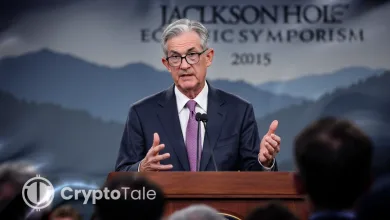Pakistan Launches First Crypto Regulator, Embraces BTC

- Pakistan launches PVARA, marking a bold shift toward regulated crypto adoption.
- Bitcoin reserve signals Pakistan’s pivot from ban to economic blockchain strategy.
- National mining and self-custody emerge under Pakistan’s crypto watchdog PVARA.
Pakistan has introduced its first national crypto regulator, the Pakistan Virtual Assets Regulatory Authority (PVARA). This action brings order to the operation of digital assets and indicates a broader economic approach. The country will also join El Salvador and Bhutan in recognizing Bitcoin as a hedge against inflation and currency volatility.
Pakistan Embraces Crypto With New Regulatory Authority
The government established the crypto regulator to oversee the digital asset industry and ensure adherence to standards in licensing and compliance. PVARA will issue digital currency platform licenses and enforce anti-money laundering and KYC rules. It also intends to use controlled regulatory sandboxes to encourage blockchain innovation.
This framework aims to reconcile innovation, financial stability, and consumer protection. The crypto regulator will collaborate with the Pakistan Crypto Council, which comprises financial, tech, and legal professionals. This arrangement signifies a shift in strategy, marking a departure from traditional resistance to integration and modernization.
The move by Pakistan follows years of involvement in informal trading and unclear laws. The new crypto overseer removes that ambiguity by introducing formal control and transparency. This is a critical milestone in the nation’s digital asset policy and the broader financial digitalization.
Pakistan’s Bitcoin Reserve and State Mining Program
Pakistan has embarked on a Bitcoin reserve as an extension of its monetary policy. The crypto regulator will engage in monitoring compliance and operating standards of the reserve. This new strategy has seen initial Bitcoin purchases being approved by the Finance Ministry.
State-run mining projects have also begun using government-allocated electricity. The experiments will turn into longer-term national programs. These programs are likely to be monitored by the crypto regulator to promote transparency and efficiency.
This dual approach aims to strengthen the economy while opening doors to international financial markets. By leveraging Bitcoin, Pakistan could reduce its reliance on foreign reserves. The crypto regulator makes sure that these initiatives do not exceed the legal and risk management frameworks.
Related: Bitcoin Volatility Drops as Adoption and Regulation Increase
From Hostility to Integration: A Policy Shift
Pakistan had banned crypto activity in 2018, when the State Bank banned banks from dealing with digital assets. Nevertheless, increasing inflation and a weakening currency have compelled the government to reconsider that position. Establishing a crypto regulator now is a new course of economic necessity.
The ban proved ineffective, as peer-to-peer trading thrived due to strong public demand for digital assets. The government is channeling that interest into a regulated market, with the crypto regulator balancing public participation and state oversight.
This change mirrors trends across South Asia, where countries are now reconsidering crypto’s role in national economies. Pakistan’s policy shift may influence regional competition, particularly in comparison to India’s slower regulatory development. The crypto regulator strengthens Pakistan’s position in this emerging financial space.




